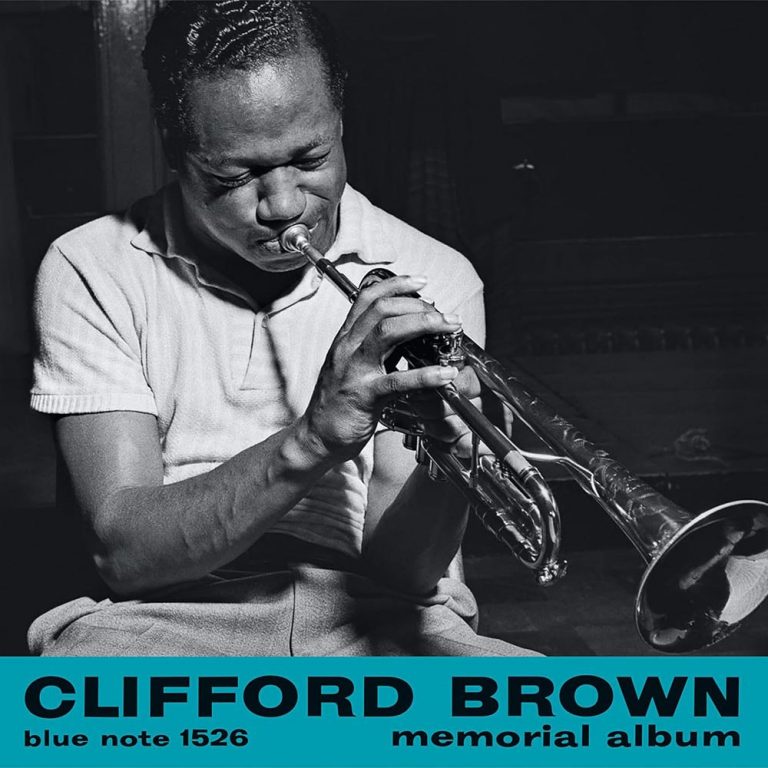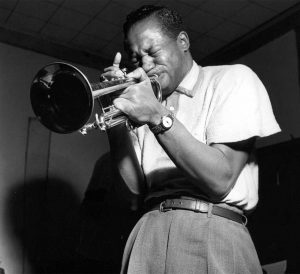Clifford Brown was somewhat of an anomaly in jazz circles in the 1950s, and not just for his outstanding musical ability. He was a studious character with a degree in Mathematics. He was also a chess master, and – in contrast to many of his fellow musicians – lived a clean life, away from drink and drugs.
As one of the leading players in jazz at the time, Brown just kept getting better, and his musical development was enticing. He’d taken the baton from Fats Navarro and created a way of playing that everyone aspired to. Before Navarro and Brown, trumpeters wanted to play like Dizzy Gillespie or Roy Eldridge. But after Navarro had mastered playing bebop idioms like Dizzy, he reworked them into something uniquely more modern. His improvisations were agile but also thicker in tone, and his notes landed differently. It marked Navarro out as a truly original trumpeter, and he was an inspiration to Brown. Brown by extension advanced Navarro’s ideas and developed his own style with longer melodies, shaping what would later become hard bop.

Clifford Brown Memorial Album LP (Blue Note Classic Vinyl Series)
Available to purchase from our US store.Which brings us to the music on “Memorial Album,” which is collected from two recording sessions in 1953. One session is co-led with sax player Lou Donaldson in June, and the other is Brown’s first outing as a bandleader in August. These recordings come just before Brown’s influential quintet with Max Roach and also before Brown played with Art Blakey’s quintet at Birdland, which was the nucleus of the Jazz Messengers. Both of those projects would pioneer the sound of hard bop, and it puts “Memorial Album” at a fascinating juncture of musical transition.
Take Brown’s composition “Minor Mood” for example, which was recorded on his date as a leader. It signaled a harmonic shift away from bebop and the show tunes of the day, to a more bluesy and minor key related feeling. John Lewis of the Modern Jazz Quartet carved out a chamber-esque piano intro, which set the tone for Brown, altoist Gigi Gryce and tenorman Charlie Rouse to lay down some wonderfully wistful solos. Art Blakey is a picture of restraint on this version, keeping supportive while still swinging. The tempo is considerably lower, compared to the breakneck speeds they were all used to playing, and it points to further slower styles to come.
Lou Donaldson said of Brown: “It was as if he was born with a trumpet in his hand. He could play strong till the end of the night. Others would start to get weak at the end of the night, but he didn’t. He was like Louis Armstrong in that respect. Some nights, we’d wait for him to miss a note, but he never missed a thing!”
Brown achieved so much in his short career, and in this respect every record of his should be celebrated. “Memorial Album” might be a farewell to an outstandingly gifted musician who was tragically cut off in his prime, but it also represents a precursor to the sound that was to come, and a reminder that while he was with us, Clifford Brown held a place at the forefront of an ever-evolving music, and had a profound effect on its course.
Read On… Joining The Bops 2/3 – Hard bop
Max Cole is a writer and music enthusiast based in Düsseldorf, who has written for record labels and magazines such as Straight No Chaser, Kindred Spirits, Rush Hour, South of North, International Feel and the Red Bull Music Academy..
Header image: Clifford Brown. Photo: Francis Wolff/Blue Note Records.


